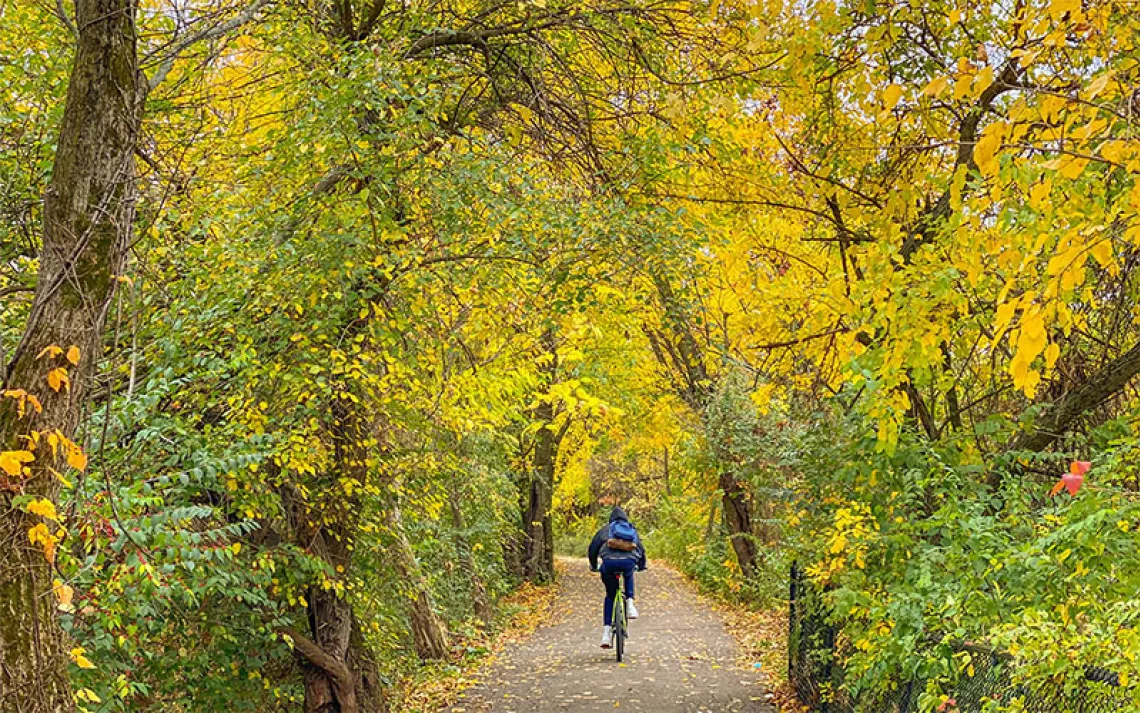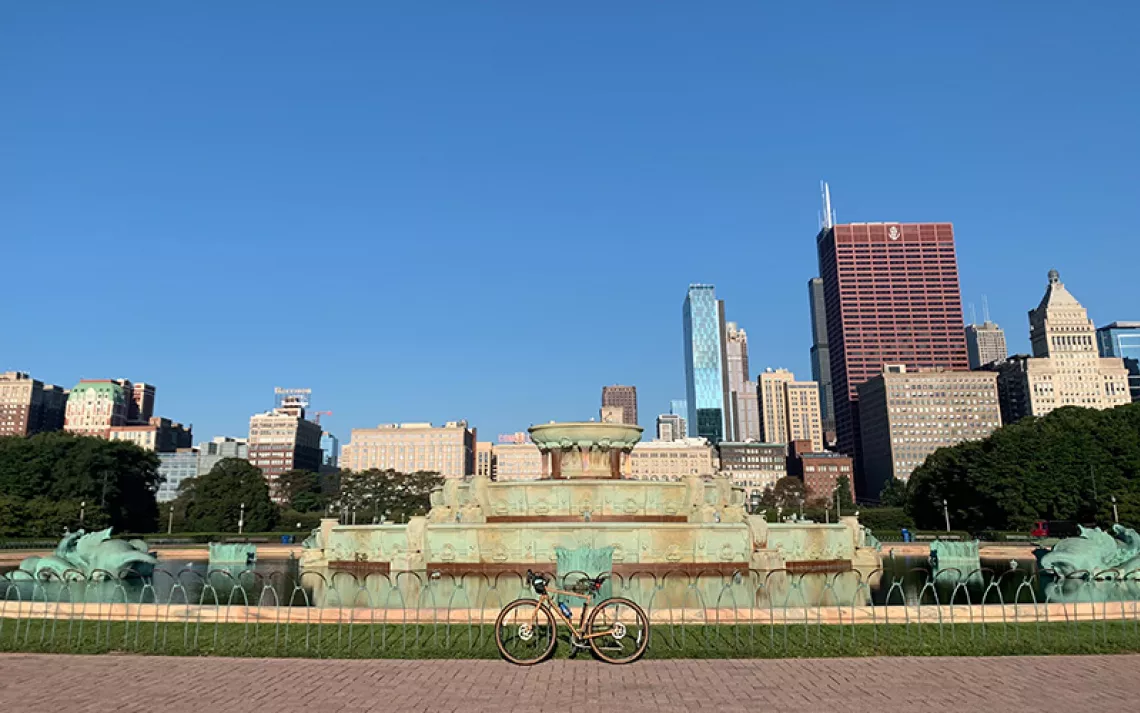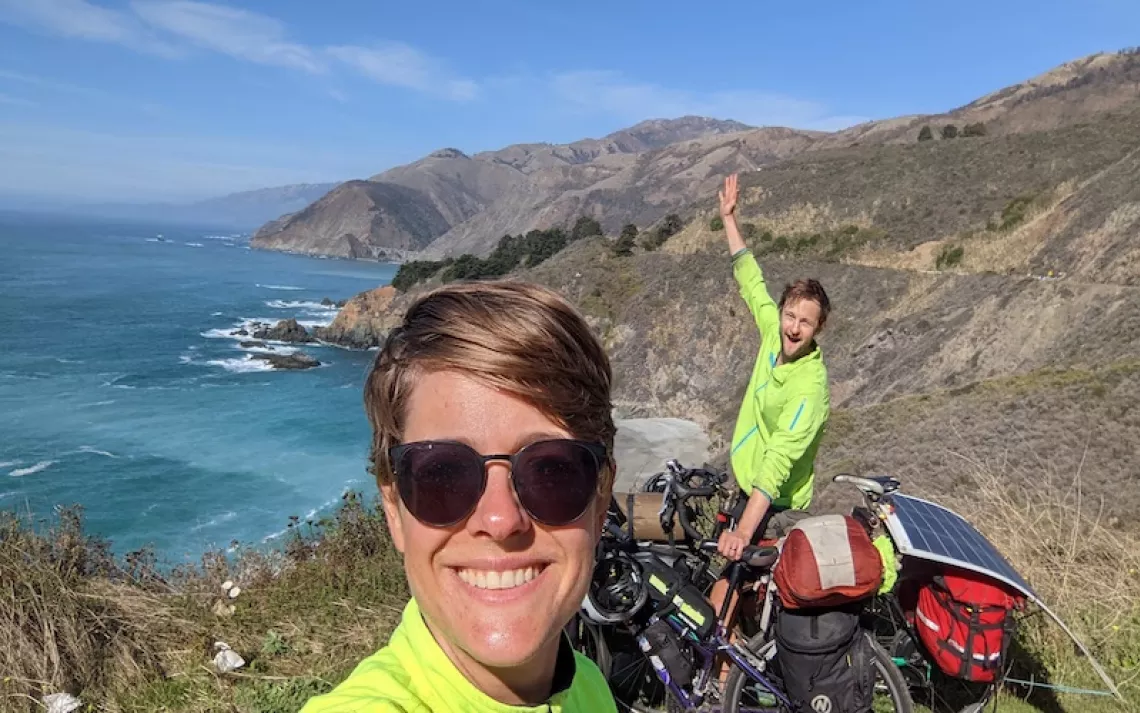Biking While Black in Minneapolis
The simple freedom of moving yourself through space in a fraught city
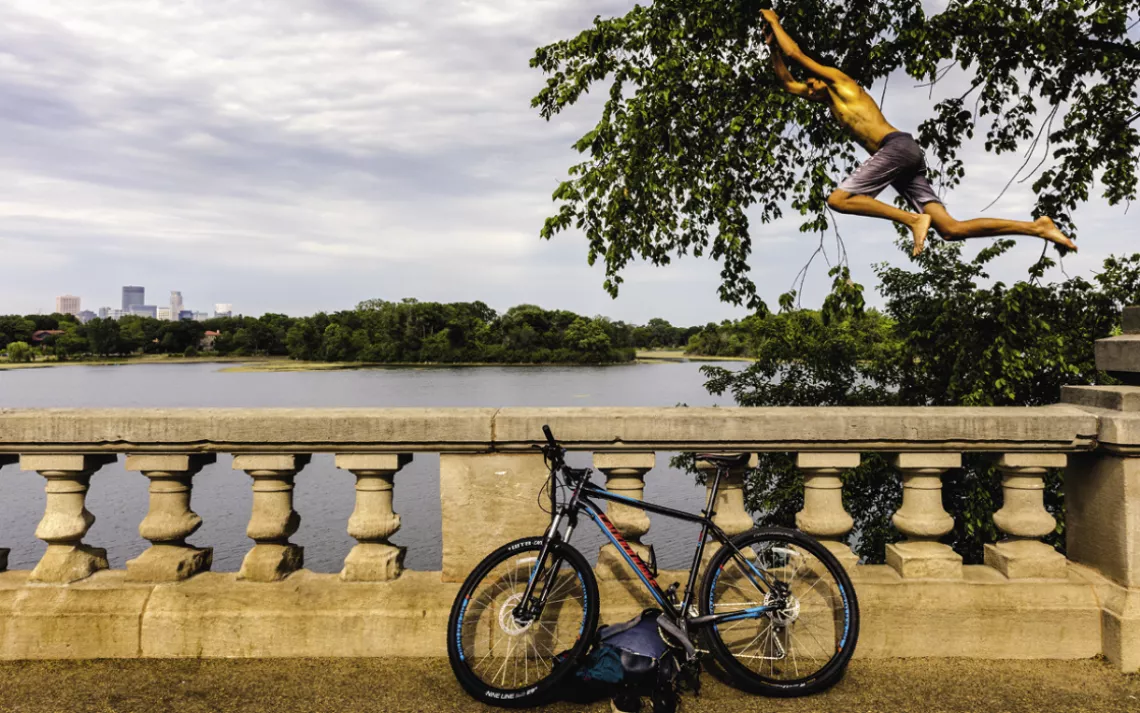
Samir Ouenniche jumps into Lake of the Isles. | Photo by Kerem Yücel
African Americans are one of the fastest growing demographics in cycling. And infrastructure-wise, Minneapolis, Minnesota, is consistently ranked as one of the country's best cities for biking. State and local officials spent decades building a network of protected bike routes that crisscross the city. Cyclists can pedal unafraid of car traffic—at least until they're dropped back onto city streets.
But Minneapolis is also a city divided by decades of segregation, police violence, and environmental injustice; by a past that's painful and by pain that is not past enough. Nationally, Black cyclists are more likely to die in bike accidents than white cyclists—in part because the routes through Black neighborhoods tend to not be safe or protected. And in the Twin Cities, as in many other parts of the United States, Black cyclists are regularly harassed and ticketed by police.
Minneapolis photojournalists Patience Zalanga and Kerem Yücel set out to document the exhilaration and the grind of being a Black urban cyclist. Here's what they found.
Alanna Morris Van-Tassel
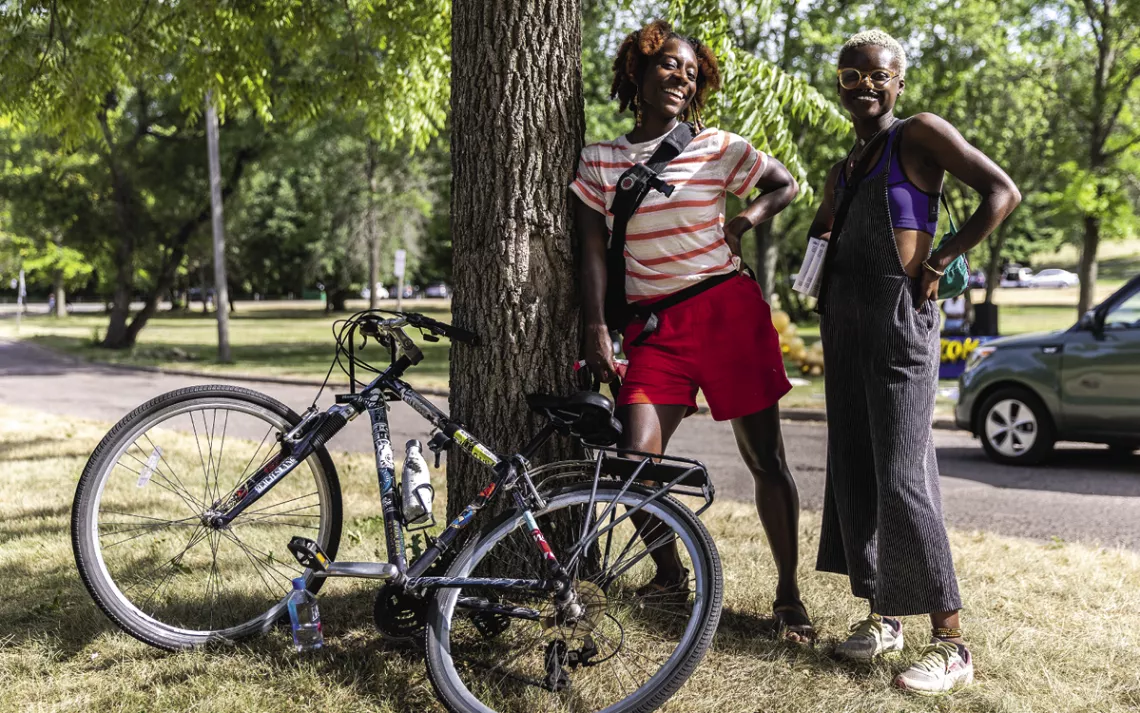
Alanna Morris Van-Tassel (left) and Ashe Jaafaru before the Juneteenth Blackout Bike Ride | Photo by Kerem Yücel
I ask my friends, especially my friends of color, do they have a bike? And I feel a little sad when they say they don't. I love the speed and thrill of a human body in motion. It's very medicinal.
I love my bike. She's a vintage Schwinn, and she always gets compliments. She has a name. I named her ceremonially. I bathed her up, and then when I got on her, I was like, "Oh man, she looks fly. Yo, I'm going to call you Fly."
When I found the Juneteenth ride last year, I was like, "Oh, there are other Black people who bike too. And so many!" When would you ever bike like that and take up a road? Considering the political context of being Black in America, it's important to take up space, because we were not brought here to do that. We were brought here as property, to work. At the end of the day, everyone's free, but we have to do these things because there is another system in place that wants you to believe that this is not for you.
On Juneteenth, we're getting so much love. People are honking. White families on the side clapping and cheering. And every time we receive love, we're giving it right back. It doesn't matter who it is. It's just love recognizing love recognizing love recognizing itself.
Rachel Olzer
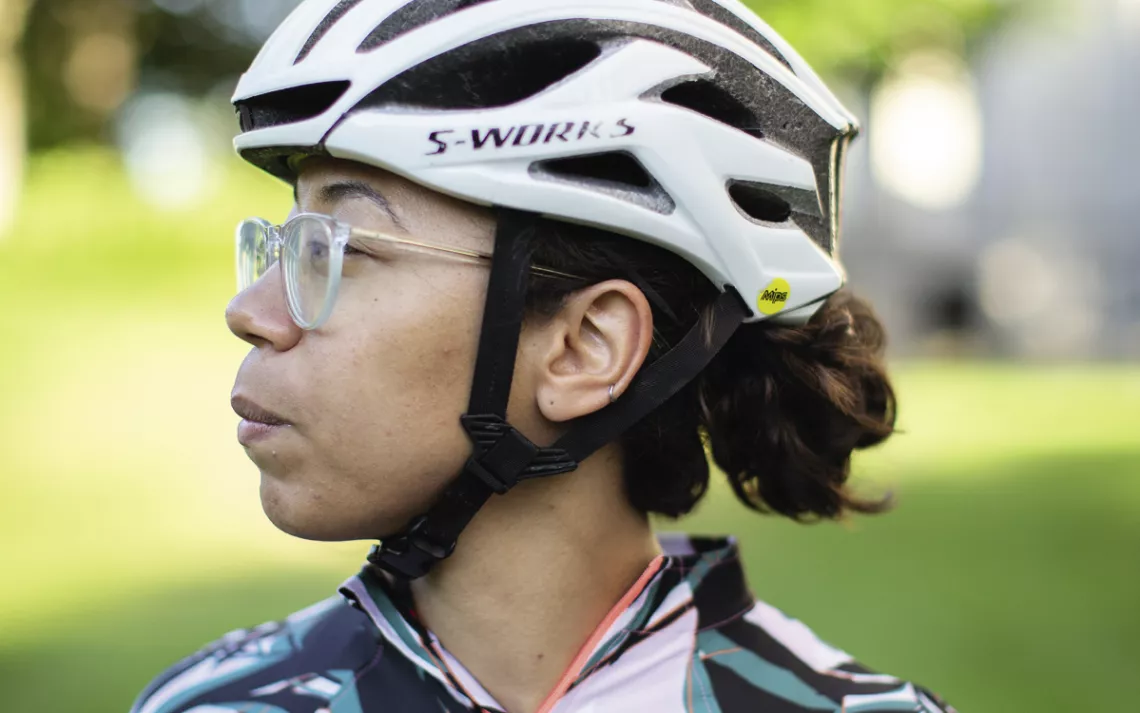
Rachel Olzer | Photo by Patience Zalanga
Last year, right before George Floyd was murdered, one of my neighbors called the cops on me. All I was doing was walking around my neighborhood with my cat. (My cat walks behind me.) That's all I was doing. It was really scary. There was this moment when you know something's not right. I was turning this corner, and I saw six cop cars all stop. They told me, "Somebody complained that you were casing houses."
I partied pretty hard in college, and I never once had someone call the cops on me. And it's been three times since I moved to Minneapolis. I think Minnesotans are very conflict-averse, which means they want other people to solve their problems for them instead of just having a conversation.
I think a lot of white people understand racism in theory, but when it comes to how that stuff plays out in their interpersonal relationships, it kind of stops there. The thing I'm always going to advocate for more than anything is white people talking to their white people about the things they do and say. At the end of the day, people of color don't really need more help. What we need is for white people to do the work within their community.
Anytime there's a cycling event, if another person of color is there, we immediately find each other, which is such a good feeling. It feels so good to be in community with other Black and brown riders. We will make space for each other—people of color can. But if we can't leave our house without the threat of violence from white people, you're only gonna get so far. You can't function in that kind of world.
We all on some level experienced George Floyd's murder and that uprising, but living here felt like literal war to me. And then it's like, "How can you care about cycling when your city is burning?" I don't ride my bike nearly as much as I used to. But then if I could get into the woods or get out on my bike, it was a reminder, like, "Hey, this place still has beauty."
So much police violence is, at its center, about threatening your right to move. All these things are about our right to movement and expression and occupying space and being allowed to explore what our bodies are capable of doing. When we're denied that right, or when we see people like us who are punished for exercising that right, it takes away such a large part of what it means to be alive and what it means to be human.
Click here for an extended version of this interview.
Anthony Taylor
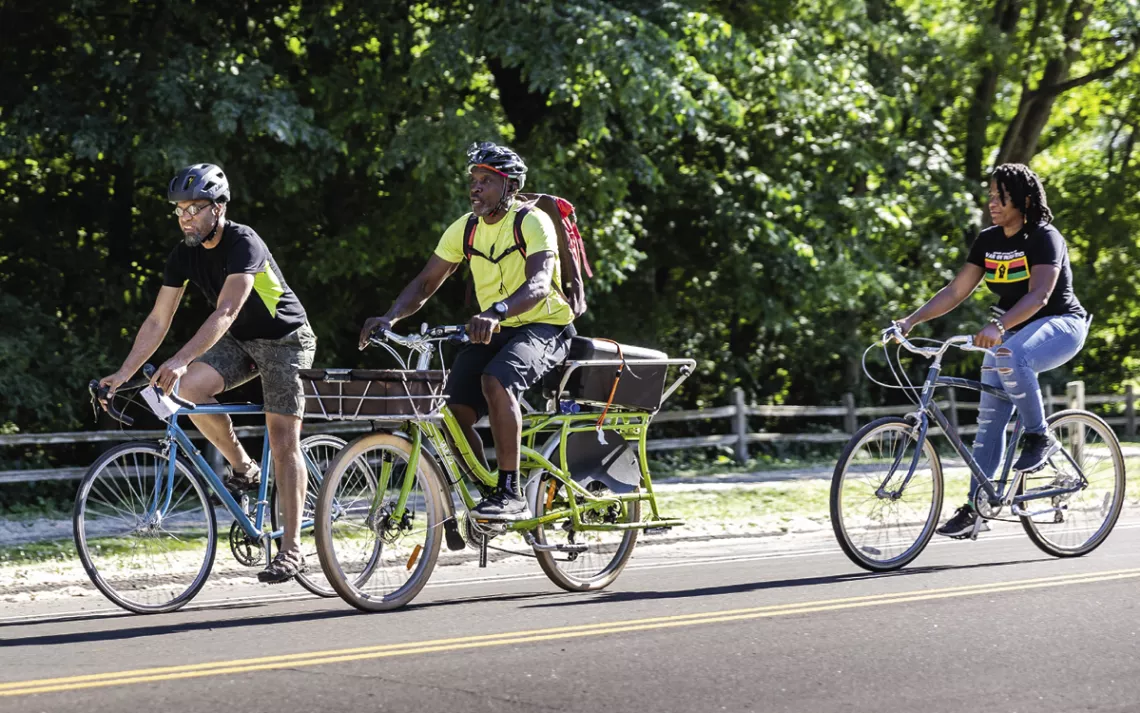
Anthony Taylor (center) rides through Theodore Wirth Regional Park with a group of cyclists on the Juneteenth Blackout ride. | Photo by Kerem Yücel
I've helped start national networks of Black bike clubs, Latinx clubs—all these cycling clubs. Our intention is to build community.
I was in Detroit, and I stumbled on a Slow Roll. I've never felt anything like it. Most people have never had that feeling of absolute safety on a bike—just relaxing enough to really enjoy the freedom of moving yourself through space. It feels like you have taken over the city.
So I started a Slow Roll here. We Slow Roll weekly from June to September. Our intention is to help people have a positive emotional experience connected to biking. If we do that, we will then get them to bike regularly. If we get them to bike regularly, now we've gotten them out of their car. If we get them out of their car, now we've gotten them into their communities. Literally rediscovering the community they live in is one of the biggest outcomes of beginning to use a bike.
Cities really do need to commit their infrastructure dollars in a way that supports biking and walking. Every third grader should get a bike. I want people to rediscover the places they live, rediscover the possibilities of connecting to nature, rediscover their ability to heal themselves, and to live well and live simply. Honor their bodies; honor the creation. Nothing does that more than a bike. Well, maybe a canoe.
Click here for an extended version of this interview.
Louis Moore
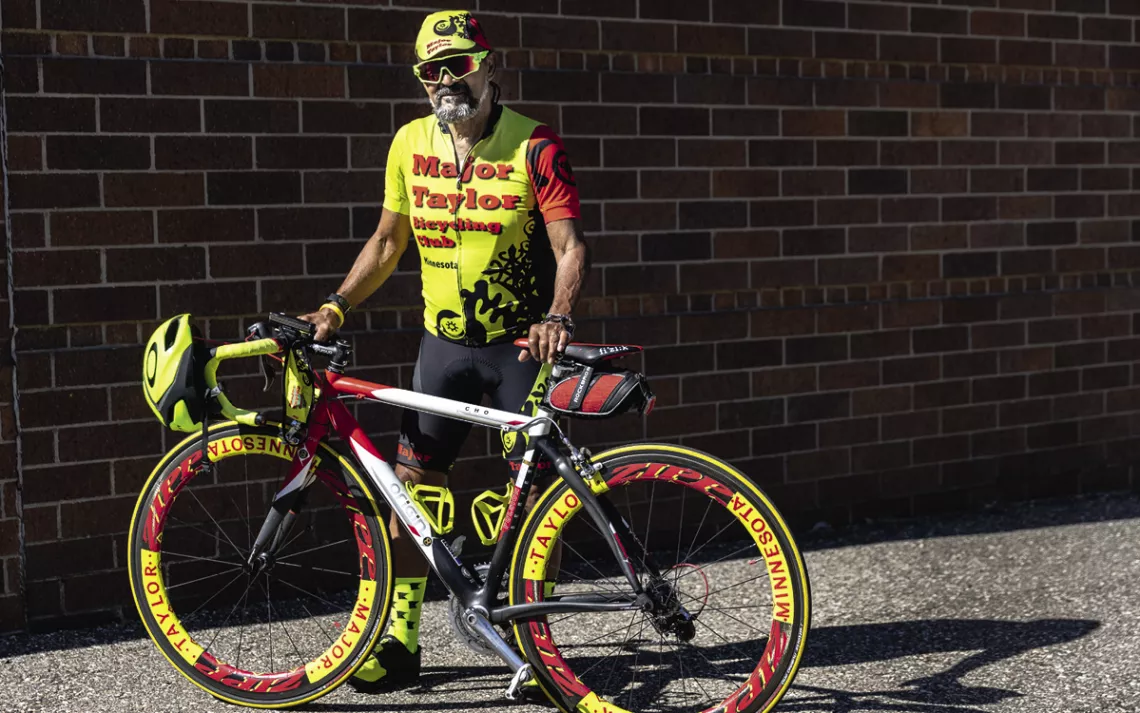
Louis Moore pauses on a ride with the Major Taylor Bicycling Club. | Photo by Kerem Yücel
I've been cycling for over 55 years. When we started our Major Taylor bike club in 1999 [Major Taylor was a pro bike racer in the 1890s], we rode up to a stop sign on 42nd Street in our yellow jerseys, and a couple of Minneapolis's finest stopped next to us, rolled down their window, and said, "What are you doing?" We said, "We're a bike club." And an officer said, "Well, that's a different kind of gang," snickered, and rolled away. He was implying that we were a bunch of criminals.
Another time, a group of 50 of us were on an all-night bike ride, from 9 at night to 6 A.M., visiting the Black community in St. Paul. A police car came rolling up, and the officer asked, "What are you doing?" When we told him, he said, "Well, let me lead you." That was a positive experience.
Click here for an extended version of this interview.
Wesley Ferguson
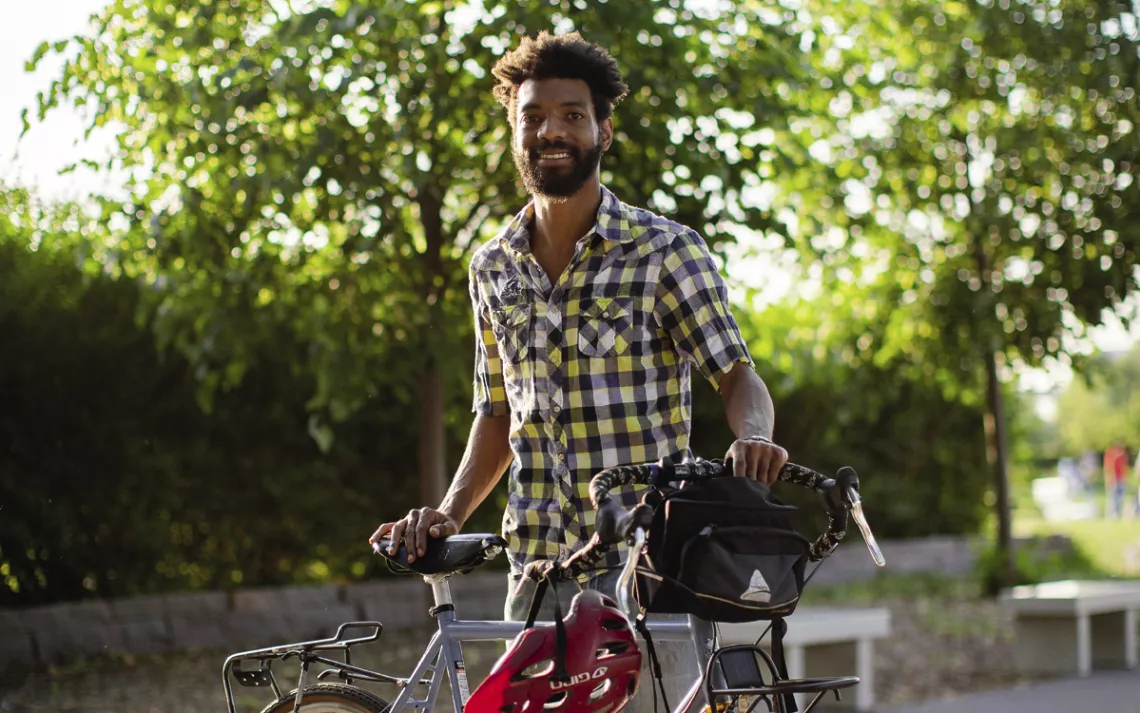
Wesley Ferguson | Photo by Patience Zalanga
I was living in Chicago, on the train going home, and these drunk Cubs fans were right behind me. The train kept stopping and going, stopping and going, and one of the dudes just threw up on me. Like in my hair. I was like, "You know what, I'm done with public transportation." I got off at the next stop. There was a bike shop right there, and I bought a fixie for 200 bucks.
I watched some YouTube videos to learn how to maintain it. I started biking to class every day. Then I needed money, so I started doing DoorDash and Postmates and all that. I had a competitive aspect, so I started getting into racing.
There's a group ride happening almost every day in Minneapolis, especially in the summer. I'll probably go to one tonight. There might not be a lot of Black people, but hopefully there is still a diverse crowd, or a diverse-thinking crowd where I can feel welcome. But not overly welcome, you know? Like, some people say, "Oh, hey, I just want to welcome you and say that I'm sorry. For everything." I'm like, "Yo, I just got here, and all I want to do is ride my bike. We don't have to bring up slavery right away."
I wish that the fear of things going wrong wasn't lurking over me. I was questioned about my bike at Cup Foods a couple of times by the cop who was outside. Like, "We got a report that a bike identical to this was stolen recently."
I was like, "Do you have the bottom-bracket number of the bike that's stolen?" They were like, "Yeah." I have memorized most of mine, which is 16 digits long. I was like, "You can check mine, or I can just tell you it right now." I flipped the bike, and I said it out loud at the same time. Like, "Yeah, this one's not it. Because this is not a true story. Let me take my groceries and go."
Click here for an extended version of this interview.

Ernest Bowie rides past George Floyd Square. | Photo by Kerem Yücel

Tyrone Dixon (right) and a friend rest on West Bde Maka Ska Parkway. | Photo by Kerem Yücel

Sara White on the Juneteenth Blackout ride. | Photo by Kerem Yücel

Participants in the Juneteenth Blackout ride. | Photo by Kerem Yücel
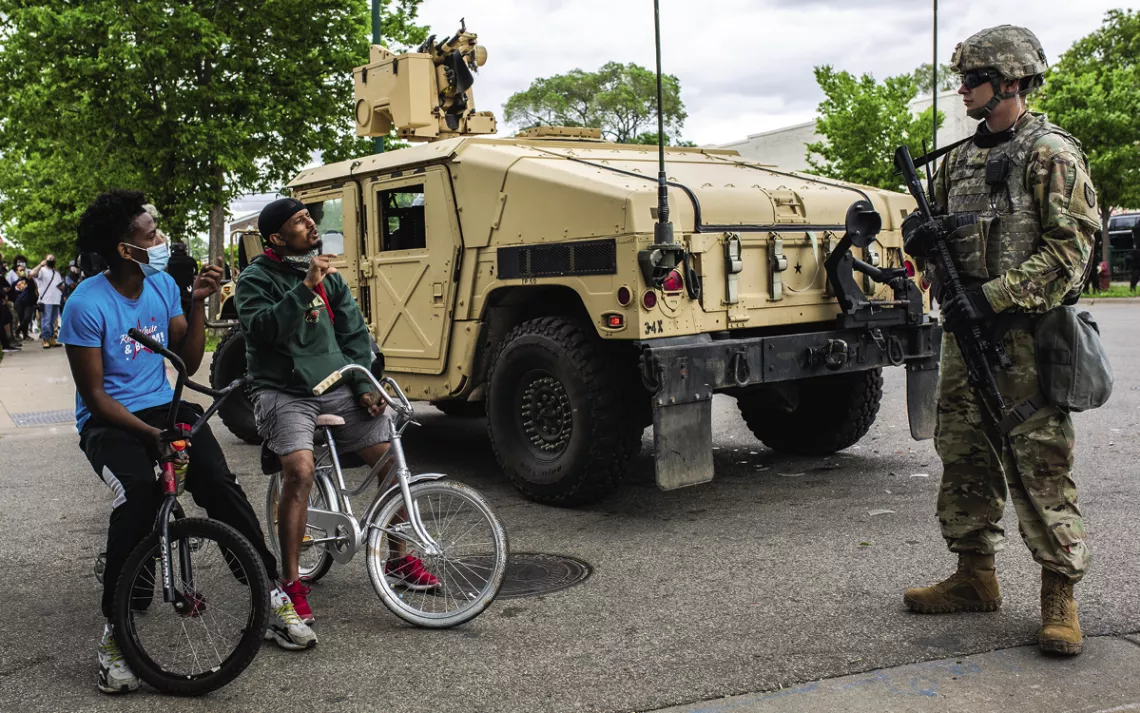
A member of the National Guard patrols the street as protesters demand justice for George Floyd. | Photo by Kerem Yücel
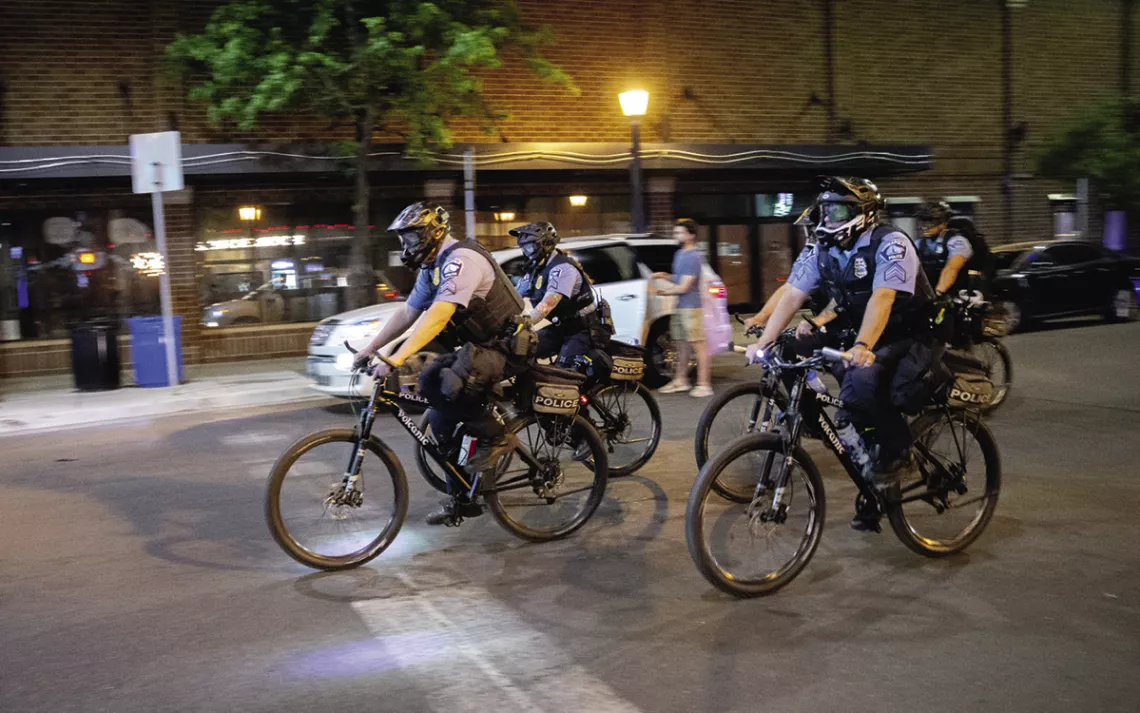
Minneapolis police patrolling on bicycles. | Photo by Patience Zalanga
This article was funded by the Sierra Club's Clean Transportation for All campaign.
These stories were condensed and edited from interviews by Patience Zalanga (Wesley Ferguson and Rachel Olzer) and Heather Smith (Anthony Taylor, Louis Moore, and Alanna Morris Van-Tassel).
This article appeared in the Fall 2021 quarterly edition with the headline "Joy and Danger in the Twin Cities."
 The Magazine of The Sierra Club
The Magazine of The Sierra Club

